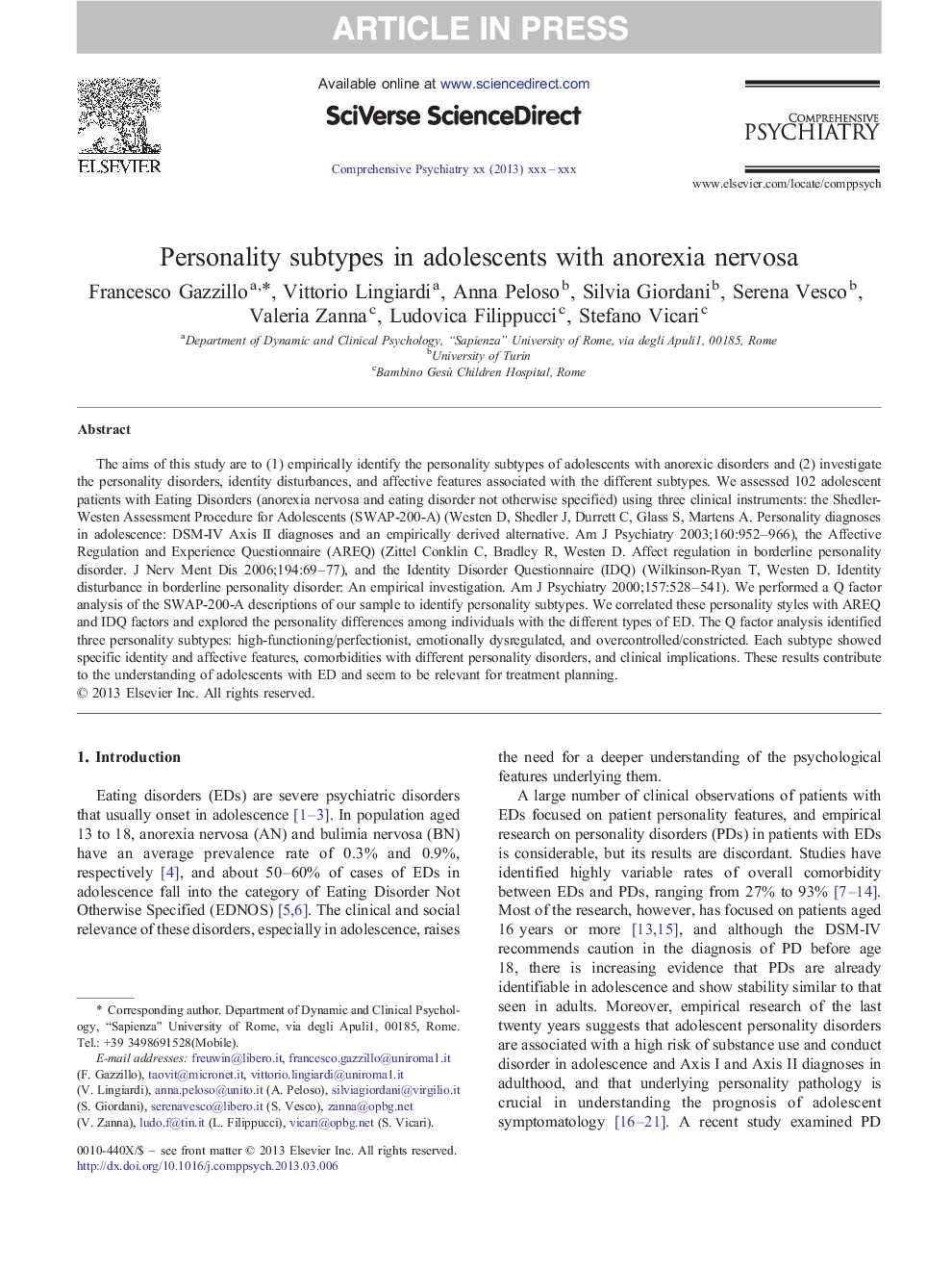| Article ID | Journal | Published Year | Pages | File Type |
|---|---|---|---|---|
| 10297892 | Comprehensive Psychiatry | 2013 | 11 Pages |
Abstract
The aims of this study are to (1) empirically identify the personality subtypes of adolescents with anorexic disorders and (2) investigate the personality disorders, identity disturbances, and affective features associated with the different subtypes. We assessed 102 adolescent patients with Eating Disorders (anorexia nervosa and eating disorder not otherwise specified) using three clinical instruments: the Shedler-Westen Assessment Procedure for Adolescents (SWAP-200-A) (Westen D, Shedler J, Durrett C, Glass S, Martens A. Personality diagnoses in adolescence: DSM-IV Axis II diagnoses and an empirically derived alternative. Am J Psychiatry 2003;160:952-966), the Affective Regulation and Experience Questionnaire (AREQ) (Zittel Conklin C, Bradley R, Westen D. Affect regulation in borderline personality disorder. J Nerv Ment Dis 2006;194:69-77), and the Identity Disorder Questionnaire (IDQ) (Wilkinson-Ryan T, Westen D. Identity disturbance in borderline personality disorder: An empirical investigation. Am J Psychiatry 2000;157:528-541). We performed a Q factor analysis of the SWAP-200-A descriptions of our sample to identify personality subtypes. We correlated these personality styles with AREQ and IDQ factors and explored the personality differences among individuals with the different types of ED. The Q factor analysis identified three personality subtypes: high-functioning/perfectionist, emotionally dysregulated, and overcontrolled/constricted. Each subtype showed specific identity and affective features, comorbidities with different personality disorders, and clinical implications. These results contribute to the understanding of adolescents with ED and seem to be relevant for treatment planning.
Related Topics
Life Sciences
Neuroscience
Biological Psychiatry
Authors
Francesco Gazzillo, Vittorio Lingiardi, Anna Peloso, Silvia Giordani, Serena Vesco, Valeria Zanna, Ludovica Filippucci, Stefano Vicari,
